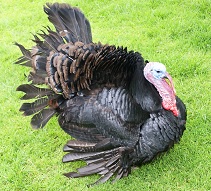November 27, 2015
|
Friday words redux
|
4899 hit(s)
If it's Friday, it's time for another new(-to-me) word and an unexpected etymology.
 New word: a Vera. This refers to a spouse/partner who handles all the quotidian aspects of an artist's life so that the artist can concentrate on their art; a "silent partner." It derives from Vera Nabokov, the wife of the writer Vladimir Nabokov, who exemplified this type of role, in the most comprehensive way imaginable: "She was his first reader, his agent, his typist, his archivist, his translator, his dresser, his money manager, his mouthpiece, his muse, his teaching assistant, his driver, his bodyguard (she carried a pistol in her handbag), the mother of his child, and, after he died, the implacable guardian of his legacy." New word: a Vera. This refers to a spouse/partner who handles all the quotidian aspects of an artist's life so that the artist can concentrate on their art; a "silent partner." It derives from Vera Nabokov, the wife of the writer Vladimir Nabokov, who exemplified this type of role, in the most comprehensive way imaginable: "She was his first reader, his agent, his typist, his archivist, his translator, his dresser, his money manager, his mouthpiece, his muse, his teaching assistant, his driver, his bodyguard (she carried a pistol in her handbag), the mother of his child, and, after he died, the implacable guardian of his legacy."
I found this term in the article that I just cited, a review in The New Yorker of a book of letters from Vlad to Vera. (She destroyed her own correspondence to him.) The article in turn points to a piece in The Atlantic about the writer Lorrie Moore, a writer who observes that between having a full-time teaching job and being a single mother, it can be hard to get a lot of writing done. Moore says the following, in which she comes close to coining the generic term Vera: There are some men I know who are teaching and writing who are single fathers. But not many. Most of them have these great, devoted wives, some version of Vera Nabokov. Writers all need Vera. A discussion of the appropriateness of such a role is, let's say, beyond the scope of our current discussion.
Turning to etymology, the word today is of course turkey. The surprising aspect here is that the turkey is very much a New World bird, one of the many flora and fauna that were new to the colonizing Europeans. It is satisfying, tho not really necessary, to quote Ben Franklin's assessment of the native turkey from a passage in which he compares it to the eagle:For in Truth the Turkey is in Comparison a much more respectable Bird, and withal a true original Native of America. He is besides, tho' a little vain and silly, a Bird of Courage, and would not hesitate to attack a Grenadier of the British Guards who should presume to invade his Farm Yard with a red Coat on.  Incidentally, if you doubt that turkeys can be aggressive, you should listen to the episode of This American Life (episode 452, "Poultry Slam") in which a particularly pugilistic turkey terrorizes Martha's Vinyard. Incidentally, if you doubt that turkeys can be aggressive, you should listen to the episode of This American Life (episode 452, "Poultry Slam") in which a particularly pugilistic turkey terrorizes Martha's Vinyard.
So why turkey? What does a thoroughly New World bird have to do with the then Ottoman Empire? There were certainly plenty of native words that could have been adopted for the bird, as was done for the raccoon and opposum, to name but two. (In Mexico, one of the words for turkey is guajolote, a name that pretty clearly comes from a Native American language.) The short answer is that it was a case of mistaken identity. Well, or mistaken origin. In the 1500s, the words turkey-cock and turkey-hen (i.e., from Turkey) were names used interchangeably with Guinea-cock and Guinea-hen (i.e. from Guinea) for a bird that Europeans had been familiar with for millennia. Basically speaking, when Europeans encountered the turkey from the Americas, they thought it was another version of a turkey-/Guinea-fowl, so they transferred a familiar name to a bird that they thought looked familiar.
So, confusion. Batman is on the case, although his explanation lacks some depth:
We know better now, but it seems doubtful that we'll be changing the name anytime soon. But you never know.
Update It looks like Gretchen McCulloch has a piece on Slate about the origins of the word turkey. Go read hers; as with all her pieces, it's informative and fun. And it's more in depth to boot.
|
 |
|

 |
|
